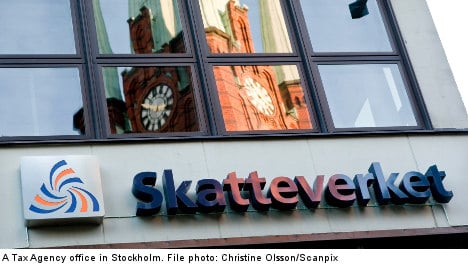“I’m a friendly, honest person and I feel like I’ve been steamrolled,” Norwegian pensioner Mona Jonsson told Sveriges Television (SVT).
Jonsson is among the estimated hundreds of Norwegian pensioners who have moved to Sweden in recent years, many of whom claim they were misinformed by the tax agency.
They say officials at the agency told them that that since their pensions were paid from Norway, they should also pay their taxes there.
Four years later, however, the Norwegian retirées have suddenly been hit with claims from the tax authorities that they now owe back taxes in Sweden.
Several of them told SVT that they have been forced to dip into their savings, with some citing fears they stood to lose their houses in order to pay their outstanding Swedish tax bills.
Egil Siira, a Norwegian who chose to spend his retirement in the northern Swedish town Vilhelmina, even has a letter from the Swedish Tax Agency stating that he was to pay tax only in Norway during the first four years of his stay in Sweden.
Several Norwegian pensioners subsequently did not pay taxes to Sweden during their first years here. But now the agency, along with the Swedish Enforcement Agency (Kronofogden), have said the Norwegian pensioners owe the Swedish state outstanding payments.
SVT reported that the likely root to this financial predicament could be that individual agency staff were unaware of a tax law reform affecting Nordic pensioners moving between the countries in the region.
Prior to 2009, taxes were indeed meant to be paid to the country from which pensions were paid. Following the revision, however, taxes are to be paid to the country of residence.
Despite written proof that at least one Norwegian citizen in Sweden was given the wrong information, the tax agency has refused to take responsibility for the mix-up.
“I don’t know what has been discussed in individual cases and can’t make any further statements,” agency legal expert Britt-Marie Hallberg-Eriksson told SVT.
“It is regrettable and a real shame if we’ve given incorrect information.”
Unable to get a sympathetic ear at the tax agency, irate Norwegians have reported tax agency head Ingemar Hansson to the police on suspicion of professional misconduct.
The Local/sh/at



 Please whitelist us to continue reading.
Please whitelist us to continue reading.
Member comments